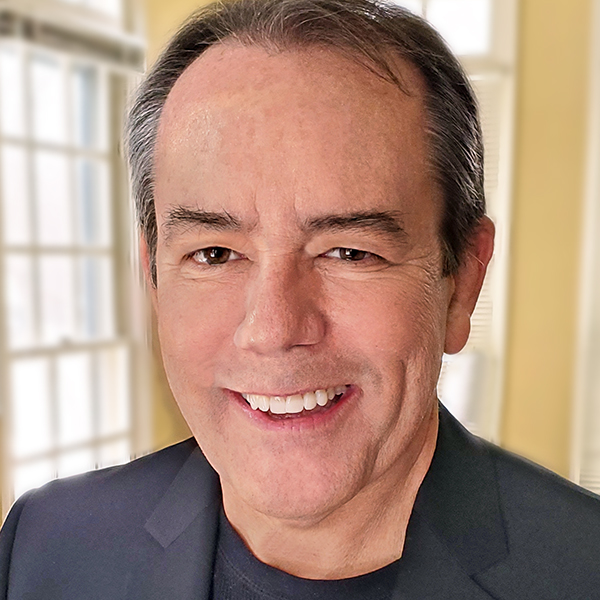For planners, the return of in-person events brings back the task of selecting and negotiating for captivating keynote and other featured speakers—and coordinating all the logistical details around getting those speakers to and from the meeting site on time, well rested, and at the top of their game.
To get a better understanding of the current environment for landing the right speaker for a given audience, MeetingsNet spoke this week with Warren Jones, co-owner and CEO of Keppler Speakers Bureau. Celebrating its 40th anniversary this year, Keppler offers speakers from the worlds of business leadership, achievement, diversity, exploration, innovation, cybersecurity, world affairs, entertainment, sports, and the arts.
MeetingsNet: Now that the post-pandemic business landscape has some stability, what is different in what corporate groups are looking to get from their speakers? Is it hands-on business experience that is hot, or is it more the inspirational themes?
Warren Jones: Several topics that were in demand for events held during the height of the pandemic have been overtaken. Interest in content about resilience and coping with isolation, for example, have been replaced with forward-looking topics like the future of work, innovation in a newly disrupted world, and team collaboration during uncertain times.
Speakers who deliver practical guidance to attendees, whether it’s protecting their businesses against cyberattacks, helping them read the economic tea leaves, or building new leadership strengths, do well. And today, our speakers on diversity, equity, and inclusion as well as environmental, social, and governance are in great demand.
A speaker’s hands-on experience sets up a foundation of credibility for any audience. Great stories engage attendees, and a speaker’s achievements can certainly inspire. And while high-profile “personality” types are attention-getting, they must deliver the goods—the corporate audience is always looking for substance and takeaways.
MeetingsNet: Across the association segment, what are you seeing in terms of speaker demand? Marketing campaigns for association events might benefit from a high-profile name, but attendees also want something beyond an inspirational message from an entertaining personality, correct?
Jones: Most associations are made up of business entities, so issues like talent retention, remote work arrangements, and building innovative cultures are as relevant and appealing to them as to corporate groups. Our association customers often are interested in a specific speaker or topic because of the industry they represent. Healthcare associations might want to explore burnout prevention, technology associations want to spur innovation, and retail associations want to protect against cyberattacks.
MeetingsNet: Are some groups still amenable to having speakers present from a remote location, even if the meeting is in person? Groups can get desirable speakers for considerably less money that way, but the interpersonal quality is diminished. What are you seeing?
Jones: The vast majority of event planners and speakers alike are embracing the return of in-person events. As attendees, we’ve all suffered Zoom fatigue, while speakers thrive on live-audience feedback.
Some of our customers are still booking virtual speaker appearances, but that’s related more to logistics and formats of individual events rather than simply seeking fee reductions or overall cost control. Fortunately, the intellectual value of a speaker’s content isn’t reduced when they present in an online format.
MeetingsNet: To maximize attendee value, are there some interesting ways that groups could get their speakers to interact with attendees and sponsors before or after an in-person presentation?
 Jones (in photo): A corporate customer who had booked a keynote speaker recently arranged a smaller, informal gathering the night before the keynote with their board of directors. Beyond these meet-and-greets, though, planners are exploring some different formats for interaction. We’ll sometimes pair two of our speakers, which adds a unique dimension with their different perspectives and energy. But moderated Q&As and panels are often the go-to option, and speakers often embrace these because it ensures that their content is truly customized for the audience. Another custom-content idea: Many of our speakers create brief video greetings ahead of an event that are specific to the group, which has proven to be popular.
Jones (in photo): A corporate customer who had booked a keynote speaker recently arranged a smaller, informal gathering the night before the keynote with their board of directors. Beyond these meet-and-greets, though, planners are exploring some different formats for interaction. We’ll sometimes pair two of our speakers, which adds a unique dimension with their different perspectives and energy. But moderated Q&As and panels are often the go-to option, and speakers often embrace these because it ensures that their content is truly customized for the audience. Another custom-content idea: Many of our speakers create brief video greetings ahead of an event that are specific to the group, which has proven to be popular.
MeetingsNet: Have speaker fees and related costs gone up a lot because of inflation, potentially blowing up planners’ speaker budgets for upcoming events?
Jones: The cost increases we’ve seen lately are driven by factors outside both a planner’s and a speaker’s control: airline and ground-service costs. In addition to to the uncertainty in flight schedules these days, the higher costs are a real challenge to planners, speakers, and agencies alike.
MeetingsNet: Right now, is it best to bring featured speakers to the meeting destination two days ahead of their speaking slots so that airline delays or cancellations won’t cause them to be tired when they speak—or even cause them to miss their scheduled engagement?
Jones: Our customer- and speaker-engagement managers have been working small miracles while navigating these challenges every day. It’s often a matter of balancing a planner’s budget with her peace of mind in knowing the speaker has plenty of buffer time between arrival and taking the stage. Our speakers have faced travel changes and complications frequently this year. Fortunately, though, they’re classic road warriors—very few things rattle them.
My advice to planners is to not rely on just a single backup plan. We’ve learned firsthand you’ve got to have a backup backup plan for keynote addresses and other featured presentations.





